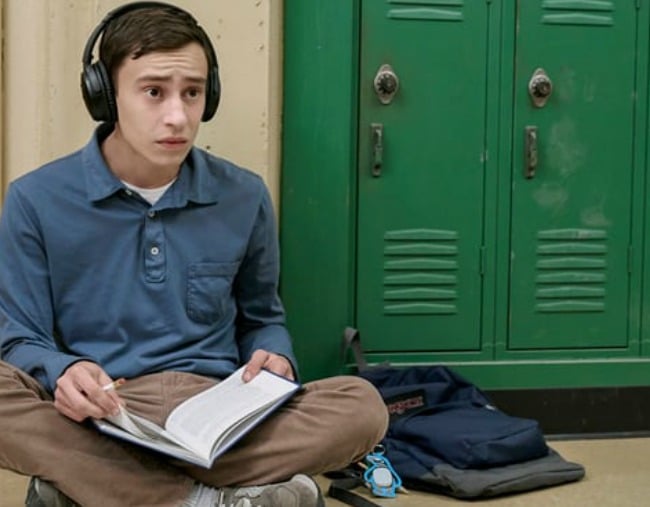Warning: Spoilers ahead for Netflix’s new series, Atypical.
Netflix’s new show Atypical is, for the most part, heartwarming, funny, uplifting and sincere.
But it also kind of turns autism into a punchline.
It packages up the story of autism into digestible, bite-sized chunks that only just scrape the surface of what it’s like to live with autism, to parent a child with autism, to be the sibling of someone with autism, and to be friends with someone on the spectrum.
Atypical tells the story of Sam, an 18-year-old American high school senior, who has autism. Sam is whip-smart, genuinely funny in moments, and extremely lovable.
As someone who grew up with an older brother who’s on the spectrum, I saw so much of my brother, myself and my family in Atypical – but there was a lot I didn’t see.
Sam, like my brother, is quite high functioning, he attends a ‘normal’ school, has some friends, is able to move throughout the world largely unnoticed.
My brother left school over twenty years ago when there wasn’t a lot of information – or understanding – around autism. My mum was basically on her own, taking him from doctor to specialist to doctor, trying to find out how she could help him move through his life successfully.

